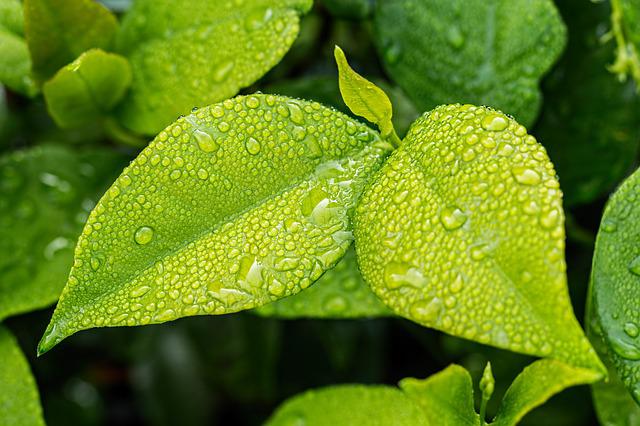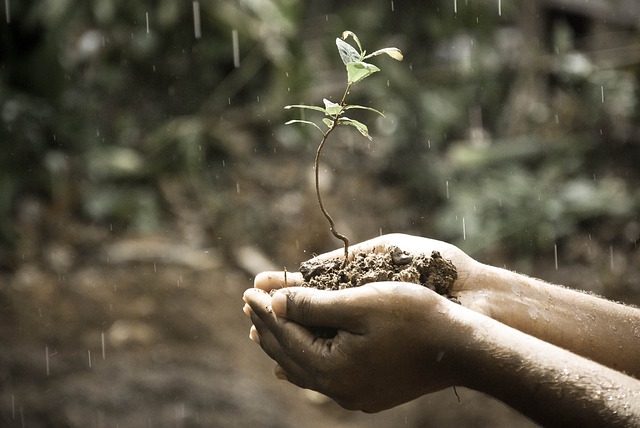
Have you ever wondered if you can actually make it rain? Not with money, mind you – that’s boring. Do you make it rain…for real? As children, many of us had a secret desire for some superpower. Those who watched “Matilda” a few times too many tried to move things with their minds. (Did it ever work for anyone? Let me know – I need answers.) Others wanted to rule the elements. Personally, I just wanted to be invisible so I could sneak into places.
Now we’re adults with jobs, and we’ve moved on from silly things like imaginary superpowers. Or did we? Why not let our imaginations run wild for a bit? Wouldn’t it be fantastic to be able to make the rain fall? If not for any other reason, then just for fun. Do you make it rain? Take the quiz and find out if you have the makings of a rain whisperer.
Are you disciplined enough to make it rain?
Rain Dance Rituals: Superstitions Behind Calling in the Rain
You might associate rainmaking rituals with the image of mysterious ancient dance ceremonies. Yet only a few years ago, the governor of Texas released a proclamation calling on his state’s inhabitants to pray for rain.
This statement – which caused many a raised eyebrow – doesn’t seem that different than Native Americans or members of African tribes performing intricate rituals to end the drought and bring the blessing of rain to their lands.

In The Meditations, a collection of books authored by the Roman emperor Marcus Aurelius, there is a rain-invoking prayer to Zeus, the Greek god of thunder and sky. We can stumble upon weather-changing practices in many cultures, including ancient Greece, shamans in ancient China, and various Native American societies like the Potawatomi or Quapaw.
Rain Dance Traditions: A Cross-Cultural Exploration
The rain dance was a common tradition in the tribes of Southwestern America, where the climate was dry, especially in late summer. Men and women gathered to perform the dance adorned in special attire and headdresses. They would frequently wear turquoise jewels or other blue items to represent rain and feathers to represent wind.
The purpose of intricate dances was to bring down rain and guarantee crop growth, ensuring the tribe would have enough food for the entire year. Generations of Native Americans – from the Navajo and Hopi tribes, for example – passed this custom down through oral tradition.
Many modern Native American communities continue to practice the rituals – primarily to assert their identity and promote dialogue among themselves and other groups in the United States.
In numerous tribes of Central and South Africa, rain-control ceremonies were also a common practice. The members of these communities relied on rainfall for their survival and well-being.
Do you know which of the Egyptian deities you are?
All tribes and regions had (and still have) differing beliefs and traditions regarding rain control. Often they had locations specifically dedicated to rain-invoking practices. For some, these were the graves of the former community leaders and chiefs. The Zulus of Southern Africa made spiritual journeys to specific hills in order to end a drought.
The Kamba people of eastern Kenya believed in the creator god Mulungu or Ngai and shared the first fruits of their harvest with him. If Mulungu was displeased with their offerings (or lack thereof), he could close the sky and stop the rain.

Many African cultures had leadership figures to whom they could attribute rainmaking powers, usually kings or queens. This tradition is present even today, for example, among the Balobedu people of the Limpopo Province.
The Rain Queen of Balobedu presides over the yearly rainmaking ritual and is supposed to have special powers, including controlling the rainfall. The title is hereditary and traditionally passed from mother to daughter. The Queen is an important figure, and many national leaders pay respects to her.
How well do you understand Queen Elizabeth‘s legacy?
Let’s move on from the African continent to Europe. Rain rituals were widespread in South European countries like Bulgaria, Croatia, Serbia, Albania, Hungary, and Greece. They usually involved young children singing, dancing, and praying to the Slavic god Perun, who was responsible for thunder and weather.
Although pagan rituals are mostly long gone, some communities still honor their traditions. In a small Greek village Sklithro, locals continue to perform the “Dudule dance.” This ritual centers around a dudule – a young girl adorned with branches from blessed trees. The villagers carry her down to the river, where she sings a song imploring the heavens for rain. Despite the passage of time, the spirit of this ancient ceremony lives on in this tight-knit community.
Do you have the gift of clear sight?
The Power of Prayer for Rain
Governor Rick Perry is not the only one who prays for rain. Members of Abrahamic religions often practice special prayers for rain. Reciting an invocation for rainfall is part of the Jewish holiday Shemini Atzeret. Muslims also have a rain request prayer in addition to the daily five prayers.
From Native American tribes to African communities and European villages, these traditions have evolved but continue to hold significance for many. Whether viewed as a spiritual practice or a form of superstition, rain dances serve as a poignant reminder of our connection to nature and the power of collective action in the face of uncertainty.
Do you make it rain? Are you deserving of the Rain Queen or King title? Let your imagination run loose and release your weather-changing powers. Take the quiz and have fun!
Do you make it rain?
Answer the questions and receive your title!
Which fictional superhero was inspired by the Balobedu Rain Queen?
The figure of Rain Queen inspired the creation of Storm, a member of the X-Men who can control the weather.
Which god did the ancient Romans ask for rain?
They made offerings to the god Jupiter.
Is it possible to make it rain?
Everything is possible if you believe…right?

